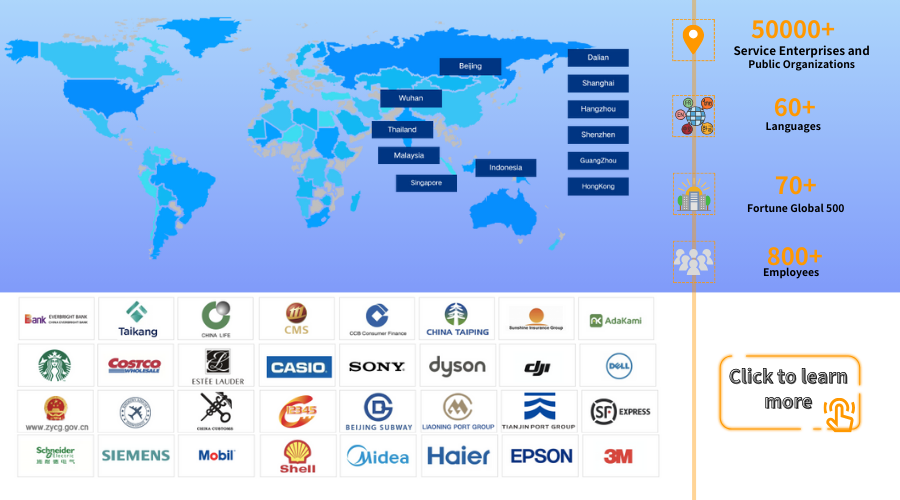Customer Lifecycle Management: Unlocking Loyal Customers
Article Summary:In today's fiercely competitive market environment, achieving long-term success and sustainable growth requires businesses to thoroughly understand and manage the entire customer lifecycle. The customer lifecycle encompasses the journey from initial contact with a business through acquisition, interaction, conversion, and retention to loyalty. This article explores how targeted intelligent system can unlock each phase of the customer lifecycle, enhancing both customer satisfaction and business value.
Table of contents for this article
In today's fiercely competitive market environment, achieving long-term success and sustainable growth requires businesses to thoroughly understand and manage the entire customer lifecycle. The customer lifecycle encompasses the journey from initial contact with a business through acquisition, interaction, conversion, and retention to loyalty. This article explores how targeted intelligent system can unlock each phase of the customer lifecycle, enhancing both customer satisfaction and business value.
Customer Lifecycle: 4 Stages

The customer lifecycle is the process by which a potential customer becomes a long-term customer. It consists of four stages—acquisition, interaction, conversion, loyalty—following consumers from brand awareness and initial purchase through to potential repeat business.
01 Acquisition Stage
During the acquisition stage, businesses aim to attract potential customers through various channels and guide them into the sales funnel. To enhance acquisition effectiveness, companies can leverage intelligent customer service systems for personalized interactions. Using data analytics and predictive models, these systems automatically identify potential customers' needs and preferences, offering relevant product or service recommendations. Furthermore, through strategies such as social media engagement and content marketing, businesses can expand their brand influence and attract more targeted customers.
02 Interaction Stage
The interaction stage is a crucial period for building customer relationships. During this phase, customers may reach out to customer service through various channels such as phone, email, and social media platforms. Therefore, omni-channel customer service tools play a vital role. These tools integrate multiple communication channels into a single platform, allowing service representatives to quickly access information. Additionally, intelligent customer service systems use natural language processing and machine learning algorithms to respond to customer inquiries and needs swiftly and accurately, providing immediate assistance and solutions. This efficient interaction not only enhances the customer experience but also strengthens their trust and satisfaction with the brand. Moreover, intelligent customer service systems can automatically detect changes in customer emotions and needs, helping businesses better understand their customers and adjust their marketing strategies accordingly.
03 Customer Conversion Stage
The customer conversion stage is a critical period for businesses to achieve their sales goals. When your potential customers reach the conversion stage, it means they have intent to purchase. By this point, they have conducted research and believe that this type of product or service can indeed solve their problems.
Through personalized recommendations and real-time support, intelligent customer service systems help customers make more informed purchasing decisions, thereby increasing conversion rates and sales revenue. Additionally, these systems automate tedious conversion tasks, freeing up the sales team's time and energy to focus more on key clients and strategic activities.
04 Customer Retention and Loyalty Stage
Maintaining customer loyalty is a key factor for long-term business success. Acquiring a new customer costs about 5 to 25 times more than retaining an existing one. Therefore, it is crucial to focus on the repurchase rate of existing customers. Intelligent customer service helps businesses build strong customer relationships through consistent care and personalized service. Through regular follow-ups, customized recommendations, and exclusive offers, intelligent customer service systems enhance customer satisfaction and loyalty, thereby extending the customer lifetime value. Furthermore, these systems utilize data analysis and predictive analytics to help businesses forecast customer churn risks and implement corresponding retention strategies.
Why is Customer Lifecycle Management Important?

Customer lifecycle management can bring tremendous benefits to any business. By aligning different marketing efforts with the stages of the customer lifecycle, you can help your brand deliver personalized and high-quality services to your customers. It is a non-linear process that guides and controls interactions between brands and consumers.
To effectively address your customers' needs, you need to understand which stage of the lifecycle journey they are currently in. By doing so, you will be able to provide meaningful and personalized communication and create more targeted activities.
By combining customer lifecycle management with Customer Relationship Management (CRM) systems, you can significantly improve efficiency at each stage of the lifecycle.
The more advanced your CRM and CLM systems are, the better your ability to handle customer communication and data. This will also provide you with comprehensive insights into your core audience while exploring new opportunities to build loyalty and respond to customer insights.
- Through effective lifecycle management, businesses can identify and seize opportunities for cross-selling and upselling, increasing Customer Lifetime Value (CLV) and thus boosting revenue and profits.
- By monitoring customer behavior and feedback, businesses can promptly identify and address customer issues, preventing customer churn. For example, measures can be taken to retain customers who are at risk of churn.
- Customer lifecycle management helps businesses better segment their customers and implement different marketing strategies and service models for different lifecycle stages, improving the accuracy and efficiency of marketing and service efforts.
Why not choose Udesk?

If you adopt an appropriate intelligent customer service system, customer lifecycle management can help you expand your customer base and your entire business. The key is to accurately predict at which stage your potential customers are, so you can successfully guide them from prospects to loyal customers.
Udesk's intelligent customer service system leverages AI technology to empower customer service, enabling effective management and service at every stage of the customer lifecycle.
Through intelligent marketing and data-driven personalized recommendations, Udesk's intelligent customer service system helps businesses more accurately identify target customers and provide customized services and product recommendations.
During customer interaction phases, Udesk's intelligent customer service system enhances customer satisfaction and experience through rapid responses and personalized service. It automates handling of customer queries and feedback, providing accurate solutions while achieving consistent interaction across channels. This personalized interaction and efficient service contribute to strengthening customer trust and loyalty to the brand.
In summary, Udesk's intelligent customer service system integrates key aspects of customer acquisition and interaction, providing robust support and tools for businesses to achieve customer lifecycle management effectively.
》》Click to start your free trial of Udesk, and experience the advantages firsthand.
The article is original by Udesk, and when reprinted, the source must be indicated:https://www.udeskglobal.com/blog/customer-lifecycle-management-unlocking-loyal-customers.html
Customer Lifecycle ManagementIntelligent Customer Service System

 Customer Service& Support Blog
Customer Service& Support Blog



